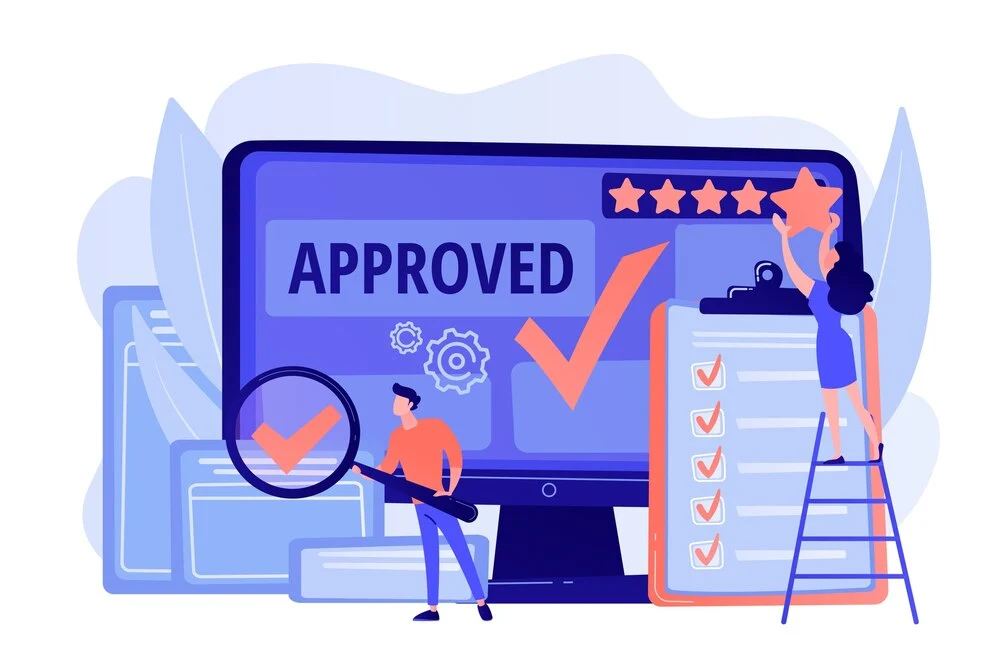A Quality assurance specialist plays an important role in ensuring the high standard of the product. From app development to product development in other industries, QA specialists are on the front lines of quality control. They help organizations prevent mistakes, improve products, and ensure customer satisfaction.
However, the real question is what does a quality assurance specialist do every day? Here’s a closer look at their daily responsibilities and the essential skills they bring to the table.
The Role of a Quality Assurance Specialist
A QA Specialist’s primary role is to evaluate and improve the quality of a product or service. Particularly talking about the tech industry, they work closely with the development team to make sure any glitch or error is caught in the early stages. Aside from that they collaborate with production and customer services teams as well to ensure the quality of the products.
These professionals then recommend improvements, helping their organizations meet regulatory standards and customer expectations. Their daily tasks can vary depending on the industry, the type of product or service, and the phase of production, but they all share a common goal: ensuring quality.
Daily Tasks of a Quality Assurance Specialist
Each day in the life of a QA Specialist is dynamic, and packed with tasks that require technical skills, keen observation, and problem-solving abilities. For instance, here’s a breakdown of what the duties of a quality assurance specialist look like at Tambena Consulting while they make sure our clients get premium products or services from us:
Review and Understand Requirements
One of the first things a QA Specialist does at the start of the day is review the project requirements. Whether working on software testing, product inspection, or regulatory compliance, understanding what the product or service should accomplish is essential. This involves:
- Reading requirement documents or technical specifications to get a sense of what’s expected.
- Communicating with project managers, developers, or product designers to clarify any uncertainties.
- Setting goals for the testing or inspection processes based on these requirements.
Having a strong grasp of the requirements allows QA Specialists to determine what areas to focus on, what tools to use, and which tests to prioritize.
Plan and Design Tests
Once they have reviewed the requirements, QA Specialists plan and design tests that will best evaluate the product. This planning phase is crucial, as a well-thought-out test can save time and uncover issues early. Daily responsibilities during this phase often include:
- Creating test plans and test cases
QA Specialists design a series of tests that simulate how the product will be used in real-world scenarios.
- Selecting tools and resources
From manual inspection to automated testing software, QA Specialists decide on the best tools for each testing phase.
- Scheduling tests
QA Specialists map out when each test will be performed and estimate how long each step will take. This is done to ensure every critical area of the product is reviewed.
Execute Testing
Testing is a core component of a quality assurance associate’s daily routine, and it can range from simple inspections to complex simulations. The type of testing conducted depends largely on the industry and product, but it generally includes:
- Manual Testing
QA Specialists manually review each component of the product to check for visual defects, functional errors, and overall quality.
- Automated Testing
Using specialized software, QA Specialists run tests that automatically identify coding or functional errors. Automated testing is particularly common in software and technology-driven industries.
- Functional Testing
This type of testing focuses on ensuring the product meets functional requirements, often simulating user interactions.
- Performance Testing
QA Specialists assess how well the product performs under stress, such as how many users a software application can handle simultaneously.
During these tests, QA Specialists document their findings meticulously, recording any issues, bugs, or deviations from expected results especially when software quality assurance is in question.
Identify and Document Issues
A significant part of a QA Specialist’s job is identifying issues that could affect quality. When they find problems, they document them carefully, often including screenshots, log files, or detailed descriptions. Their documentation includes:
- Descriptions of the issue and how it affects the product.
- Steps to reproduce the issue so developers or engineers can see how it occurs.
- The severity level indicates how critical the problem is, which helps teams prioritize fixes.
- Possible solutions or recommendations, based on the QA Specialist’s experience.
Collaborate with Development or Production Teams
After documenting issues, QA Specialists work closely with development or production teams to address the problems. This collaboration involves:
- Explaining the issue
QA Specialists often discuss their findings with developers to ensure that the issue is understood fully.
- Suggesting improvements
Based on their expertise, QA Specialists may suggest changes or improvements to prevent similar issues in the future.
- Tracking progress
QA Specialists monitor how developers or engineers handle the issues, ensuring that fixes are implemented correctly.
Perform Regression Testing
After developers have made fixes, QA Specialists perform regression testing to ensure that previous functionalities haven’t been impacted by recent changes. This involves re-testing parts of the product to confirm that:
- The original issue has been resolved.
- No new issues have been introduced during the fix.
- The product still meets all functional requirements.
Analyze Test Results and Report Findings

At the end of each testing cycle, QA Specialists analyze the results and prepare reports that summarize their findings. These reports generally include:
- A summary of test cases executed, detailing which tests passed and which failed.
- Issues detected and their resolutions, along with severity levels.
- Recommendations for further testing or improvements if needed.
This test report is presented to project managers, stakeholders, and clients. Then they get to decide whether the product is ready to move forward or not.
Continuous Improvement and Skill Development
QA Specialists often dedicate time each day to refining their skills, researching new testing tools, or learning updated industry standards. They may:
- Attend team meetings to discuss updates or new methods.
- Read industry articles to stay informed on trends in QA processes and technologies.
- Experiment with new testing tools or methodologies.
Quality Assurance is a field that constantly evolves, especially with technological advancements. Staying current helps QA Specialists enhance their testing strategies and deliver more robust quality checks.
Essential Skills and Qualities for a QA Specialist
The daily life of a QA Specialist requires a blend of technical skills, analytical abilities, and interpersonal qualities. Some essential skills include:
- Attention to Detail
QA Specialists need a keen eye to catch minor flaws that could affect the product’s quality.
- Analytical Thinking
They must be able to analyze data, interpret test results, and identify patterns in issues.
- Technical Skills
Familiarity with testing tools, software development languages, and automation is often necessary, especially in tech-heavy fields.
- Communication Skills
QA Specialists need to document issues clearly and collaborate effectively with other teams.
- Patience and Persistence
Testing can be repetitive, and resolving complex issues may take time. Patience and persistence are critical.
Conclusion
A day in the life of a QA Specialist is dynamic and multifaceted, filled with tasks that ensure products and services meet high-quality standards. From planning and executing tests to collaborating with teams and analyzing results, QA Specialists play an indispensable role in organizations across industries.
With our custom web development services you can rest assured about the user-friendliness and functionality of your website. With a balance of technical expertise, problem-solving, and attention to detail, our QA Specialists keep quality at the forefront of everything they do.
So, reach Tambena Consulting today to get a free quote.






